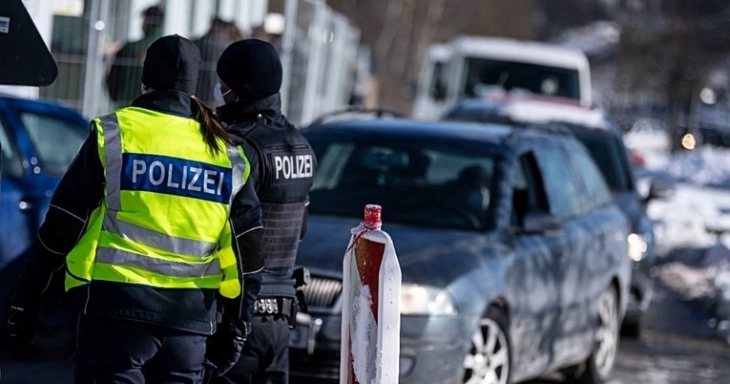Germany notifies EU of checks on Czech, Swiss and Polish border
- Germany is set to introduce fixed border checks on entry points from Poland, the Czech Republic and Switzerland, the Interior Ministry announced on Monday.

Berlin, 16 October 2023 (dpa/MIA) - Germany is set to introduce fixed border checks on entry points from Poland, the Czech Republic and Switzerland, the Interior Ministry announced on Monday.
Interior Minister Nancy Faeser on Monday notified the European Commission about the plans, which will mean the possible introduction of police checks directly at the borders between Germany and its three neighbours.
Such checks have been in place at the border with Austria since 2015. These are to be extended for another six months, the ministry announced.
"We need an effective limitation of irregular migration to relieve the burden on our municipalities," Faeser said, explaining the decision, which will initially take effect for 10 days.
According to the ministry, the notification can be extended for up to two months after the expiry of this period.
Faeser also expressed concern about the smuggling of people, which she says is becoming "increasingly brutal."
"It is necessary to take all possible measures to stop this cruel business with people's lives," the minister said.
From the beginning of January to the beginning of October, the police detected about 98,000 unauthorized entries into Germany, according to the ministry.
The minister pointed out that in future, too, not every vehicle will be stopped around the clock at the border crossings concerned.
The police will now be able to "flexibly deploy the entire bundle of stationary and mobile border police measures, depending on the current situation."
She said it was particularly important "that the checks have as little impact as possible on the daily lives of commuters, on trade and on travel."
Faeser recently announced increased mobile checks by police near Germany's eastern border.
Refusing entry to someone at the internal borders of the Schengen free-travel zone is only legal if the European Commission has been notified in advance about the temporary introduction of border checks.
However, people are turned back in relatively few cases, for example if a foreigner is subject to an entry ban or if he or she does not apply for asylum.
Several Schengen states have notified the EU about planned border checks.
France, for example, has applied for checks at its borders with Belgium, Luxembourg, Germany, Italy, Spain and Switzerland, citing the risk of terrorism and irregular migration via the central Mediterranean route and the Balkan route.
However, the French do not check everywhere around the clock, but rather selectively and adapted to the situation. In future, this will probably also be the case at Germany's borders with the Czech Republic, Poland and Switzerland.
Although never far from the headlines, migration into Germany has become a more hotly debated issue since recent state elections showed a rise in popularity for the far right.
The number of asylum applications has meanwhile increased substantially.
Between the beginning of January and the end of September, 233,744 people applied for asylum in Germany for the first time, about 73% more than in the same period last year.
Many municipalities are stretched to the limit when it comes to accommodating, caring for and integrating the refugees - also because more than 1 million war refugees from Ukraine have arrived in Germany since the beginning of the Russian war in February 2022.
Photo: MIA archive







